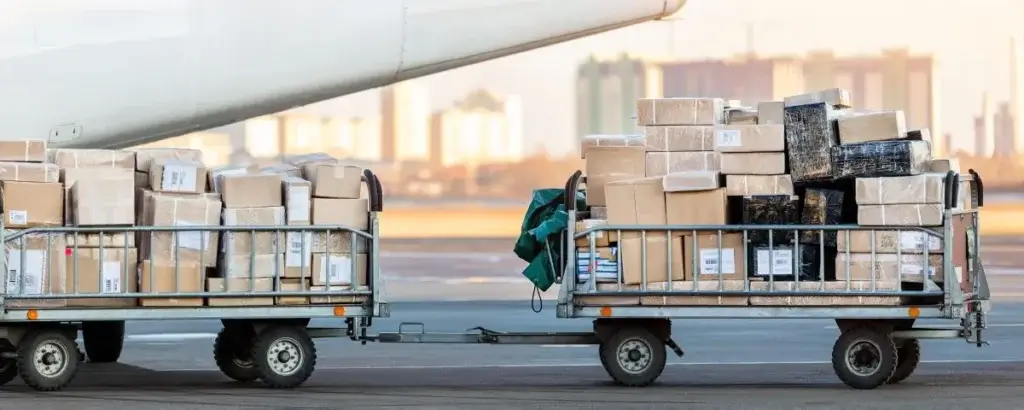The issue of liability has come up in relation to the new customs checks on EU goods that are due to enter into force on January 1st 2022.
The arrangements for this require hauliers to obtain a UK Government Gateway account and register for the new GVMS System. In addition, hauliers will have to create a GMR (Goods Movement Record) for every vehicle. Lorry drivers will either have the GMR barcode sent to them by the haulier or be in possession of a printed GMR barcode.
The aforementioned advice about liability, which has forwarded onto customers by a highly-regarded, Dover-based customs clearance company, read as follows:
“LIABILITY– The Company creating the GMR we understand will be responsible to UK Customs for all goods loaded to the vehicle and any Customs debt. The Company must ensure all goods have the appropriate Customs declarations in place before the driver boards the ferry/train.”
Understandably, this advice was something of an eye-opener for road transport firms delivering goods into the UK. One owner-van driver who received the information promptly shared the above quote on Twitter, raising concerns and doubts as to who is indeed liable:
LIABILITY– The Company creating the GMR we understand will be responsible to UK Customs for all goods loaded to the vehicle and any Customs debt. The Company must ensure all goods have the appropriate Customs declarations in place before the driver boards the ferry/train. pic.twitter.com/rMkhUOnmmG
— ciaran the euro courier 🇪🇺🇮🇪 (@donnyc1975) November 23, 2021
If hauliers were liable as stated, it would likely put off some road transport firms from delivering loads into the UK. That would, in turn, cause severe supply chain problems on top of the already-existing difficulties.
Keen to get a second opinion, Trans.INFO got in touch with Alex McDonald, General Manager of Customs Link. Mr McDonald then swiftly sought clarity on the issue, and thanks to his help, we are able to provide our readers with some clarification from HMRC.
As the HMRC employee explained, “It’s not the case that the person who creates the GMR is responsible for the customs debt, that remains with the importer/declarant.”
The HMRC representative also made the following points regarding the issue:
- Declarants have a legal obligation to pre-lodge declarations if they are moving their goods through a location using the pre-lodgement model.
- The person transporting / in possession of the vehicle or trailer (usually the driver) has a legal obligation to carry evidence that a pre-lodged customs declaration is in place for all of the goods they are moving. This is met by carrying a GMR which must include a declaration reference for each consignment as proof that a pre-lodged declaration has been made.
- Ferry and train operators also have obligations not to allow goods to board en-route to a border location operating the pre-lodgement model without a declaration in place, which will be met by requiring a GMR for each vehicle or trailer movement.
- Once the goods arrive in GB, the driver must also comply with all instructions and take goods to an Inland Border Facility (IBF) for an inspection if instructed by HMRC. The person who created the GMR (usually the haulier) should take reasonable steps to ensure that their drivers are made aware or have the means to check if an inspection is required. The haulier, in addition to the driver, must follow HMRC instructions received through a GVMS notification and both or either may be liable to a penalty if goods do not arrive at an IBF for an inspection as instructed by HMRC. A driver can check the status of their goods themselves using the “check if you need to report for an inspection” service.
The doubts over customs liability that emerged earlier this week arguably indicate just how more complex the new UK-EU trading arrangements are, and how important it is for importers to prepare for the incoming checks. The company who understood hauliers would be liable is highly regarded and “almost always 100% correct” according to multiple Trans.INFO sources.
Yesterday, Robert Windsor of the British International Freight Association told a Scottish Parliament Economy Committee that “The customs changes coming in on January 1 are very significant.” He added: “In effect, you are seeing the UK reimposing full customs controls on all goods coming from the European Union into the UK.”
Reacting on Twitter to comments from Mr Windsor and others in a report by The National, trade and customs expert Anna Jerzewska stressed that the temporary simplifications currently in place at the UK border must end.
The renowned customs expert added that this was necessary “for the UK to be fully in control of its borders and revenue” and “to level the playing field as it’s not fair on UK businesses that EU exporters are not subject to the same controls as UK businesses exporting to the EU.”
Jerzewska also tweeted yesterday about how around 85% of those interested in attending her course on commodity codes are consultants and lawyers – people that already provide classification as a service to their clients. In her opinion, this is because these very people “know how important it is”. Meanwhile, “many companies still believe deadlines will be postponed, compliance won’t be enforced and it doesn’t necessarily matter anyway.”
Finally, Jerzewska added:
“Promoting compliance and helping companies understand their role and responsibilities in international trade. And their liability. This won’t happen overnight on 1 Jan 22 but gradually – it will be a long process. It will be incredibly interesting to see how HMRC approaches this. Especially in the first few months of 2022.”
Photo by Ethan Wilkinson on Unsplash









